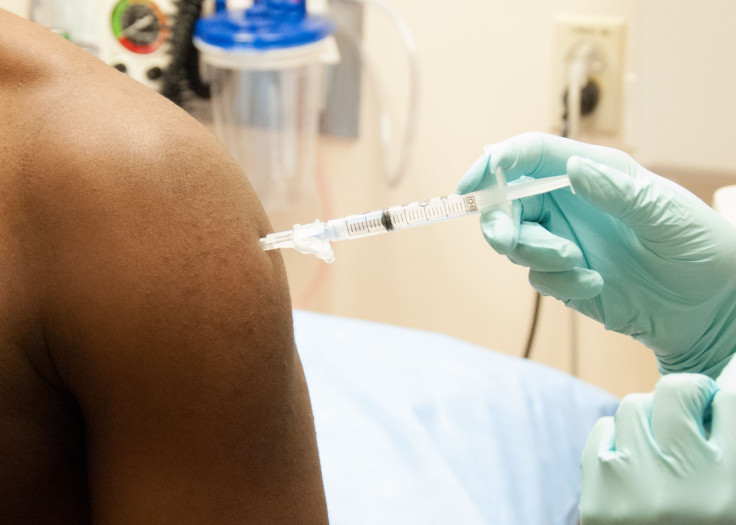NIH Ebola Vaccine Produces Antibodies In Bloodstream, Shows Promise As Outbreak Persists

The Ebola outbreak in West Africa sent scientists all over the globe scrambling to develop a vaccine, treatment, or cure to help curb the highly infectious and fatal disease. It appears they’ve begun to make some progress.
Researchers from the National Institute of Allergy and Infectious Disease (NIAID) have come up with a new vaccine they believe might be the breakthrough in helping prevent the disease in the future. Being able to administer shots for the virus could help curb the current outbreak and stop the disease later on.
The Ebola vaccine was developed at the NIAID Vaccine Research Center (VRC) in collaboration with Okairos, a biotechnology company acquired by drugmaker GlaxoSmithKline (GSK). The vaccine contains bits of genetic material from two different Ebola virus strains, which came from Sudan and the Zaire, that were inserted into a carrier virus (the adenovirus 3 or cAd 3) found in chimpanzees as a common cold — it causes no disease in humans. The vaccine doesn’t contain the Ebola virus itself, but can trigger the body’s immune system to begin making Ebola virus antibodies due to the Ebola genetic material inside.
For the trial, 10 participants aged 18 to 50 received an intramuscular injection of the vaccine at a lower dose, while another 10 participants received an injection at a higher dose. Within four weeks of receiving the vaccine, all of the participants in both groups had developed Ebola antibodies. In addition, the vaccine triggered a T-cell response in many of the participants, as well as the production of CD8 T cells, which are believed to assist in immune protection of the Ebola virus. These CD8 T cells were detected in two of the participants who had received a lower dose, and seven of those who had received the higher dose.
“We know from previous studies in non-human primates that CD8 T cells played a crucial role in protecting animals that had been vaccinated with this NIAID/GSK vaccine and then exposed to otherwise lethal amounts of Ebola virus,” said Julie Ledgerwood, a researcher at the NIAID Vaccine Research Center and the lead investigator of the trial, in a press release. “The size and quality of the CD8 T cell response we saw in this trial are similar to that observed in non-human primates vaccinated with the candidate vaccine.”
According to GSK, the vaccine candidate’s development is “progressing at an unprecedented rate” and is being further studied in the U.S., UK, Mali, and Switzerland. If these trials are successful, the next phases of the clinical trial would begin in 2015. That phase would involve vaccinating thousands of frontline health care workers in both Sierra Leone and Liberia, two of the West African countries most affected by the virus.
“The unprecedented scale of the current Ebola outbreak in West Africa has intensified efforts to develop safe and effective vaccines, which may play a role in bringing this epidemic to an end and undoubtedly will be critically important in preventing future large outbreaks,” said Dr. Anthony Fauci, director of NIAID, in the press release. “Based on these positive results from the first human trial of this candidate vaccine, we are continuing our accelerated plan for larger trials to determine if the vaccine is efficacious in preventing Ebola infection.”
Source: Stanley D, Honko A, Asiedu C, Trefry J, Lau-Kilby A, Johnson J. Chimpanzee adenovirus vaccine generates acute and durable protective immunity against ebolavirus challenge. Nature Medicine, 2014.
Published by Medicaldaily.com



























